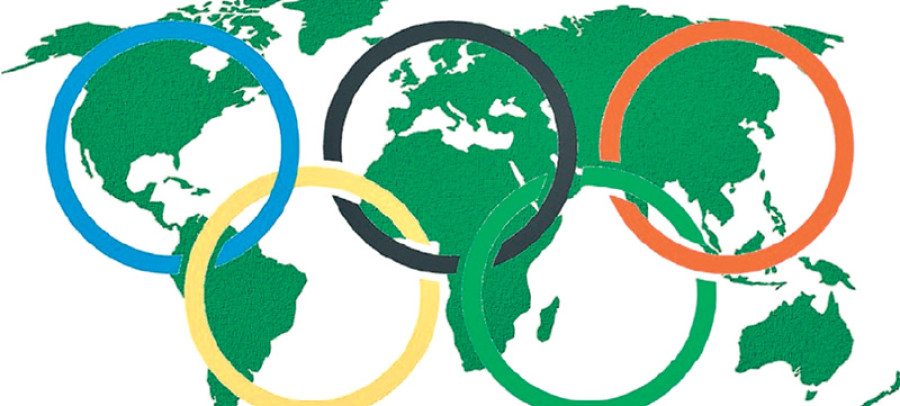Opinion
Games for all-round development
The hosting of the National Games held last month has the potential to be a milestone in the development of sports in Nepal.
Simone Galimberti
The hosting of the National Games held last month has the potential to be a milestone in the development of sports in Nepal. Despite many logistical and other organisational challenges, the fact that the National Sport Council and its partners managed to organise the games after a long gap is an indication that sports are back on the agenda. We need to build on the momentum and ensure that more is done to make national sports on a par with international standards.
Sure, simply hosting the National Games is not a substitute for a long-term strategy for the development of sports in the country. The future of national sports does not depend only on matters related to financial resources, but also on the willingness and skills to think long-term and invest in local infrastructures and human resources.
Apart from the political will at the central level to build these critical infrastructures, four determinants, all grounded in the grassroots, can make a difference and help take national sports to the highest levels.
Well-being and character
First, we should harness the power of individuals who are passionate about sports and are ready to personally get involved in supporting grassroots activities. Volunteers—citizens of all the ages who genuinely love sports—can make a difference locally by devoting their time and skills to harness the potential of children and youngsters in the sector. All over the world, there are millions of people passionate about sports who can offer invaluable contribution to shape the attitude of the young generations.
Closely related is the second factor of sports development—the recognition of the extra value sports offer. After all, it has been well established that sports are good in multiple ways: not only for our well-being, positively impacting the physical and psychological dimensions of our health, but also for our character.
Coach John Wooden of the legendary UCLA basketball team, one of the most successful teams in the entire American college basketball history, always considered himself not a coach, but a teacher first and foremost, which is what drove him to conceptualise the so-called “Pyramid of Success”. Playing in a team offers a youngster a great learning platform where she can learn about team work, cooperation, sacrifice hard work, resilience, grit and determination, all key values in a person’s all-round development. We should not forget that succeeding in life is not about winning a trophy or getting material rewards and recognition.
I recently read a short article about an interview with Denzel Washington, a famous Hollywood actor, who said that fame in this modern and interconnected world is overrated. Washington was not considering himself more successful than his father who had to take humble jobs to sustain his family during many times of hardship.
Indeed Coach Wooden defines success as “peace of mind, which is a direct result of self-satisfaction in knowing you made the effort to do your best to become the best that you are capable of becoming.” We should not be surprised that the United Nations Office on Sport for Development and Peace is investing in leadership programmes for youths all around the world.
This is also one of the reasons that our sport coaches—national volunteers who train wheelchair basketball teams—are trained not only to be great coaches, but also to become mentors and role models.
If we fully understand the leadership dimension of sports, perhaps more parents might be incentivised to encourage their children to get involved in them. We should not forget the fun aspect of playing games; it is the predominant attraction for a child towards sports.
The third factor is the recognition of the important role that schools have in promoting sports. The case of basketball is illustrative, as the major national tournaments are normally organised by colleges that collaborate with each other for such endeavour.
Harnessing the potential of sports at the school level is probably one of the most important reasons that makes the United States arguably the most successful sport nation in the world. In the US, practising sports is a key element of school life for most students.
Obviously, there are limitations to what schools and colleges can do, especially in the light of the disparities between private and public institutions in Nepal. However, with greater support from the authorities, schools and colleges can kick-start a new era of development of national sports.
The last, but not the least, factor of sports development in the country is related to social inclusion and equality: sports are a unifying platform that brings persons from different background together. It would be totally unfair if we forget the achievements and the vast potential still unexplored of adaptive sports in the country.
Adaptive games
There are plenty of athletes living with disabilities who are real champions, not only on the field but also in life. Recently, a national delegation played wheelchair basketball and wheelchair cricket in India, which delivered positive results. The National Blind Cricket team led by Major Pawan Ghimire is soon going to participate in the blind cricket world cup. There are many examples of exceptional athletes with disabilities who need support and help, not out of charity but because of their skills.
A real game changer would be if concerned national authorities would come together and support the organisation of the National Adaptive Sport Games. As for the Paralympics games that are drawing more and more audience worldwide, having national adaptive games will raise the quality of our athletes and help develop a new understanding of disability in Nepal.
Harnessing the power of volunteers in sports, thinking of sports as a well-being and leadership booster, and formulating a national strategy to develop sports at the school level—together with more and better recognition of adaptive sports—are all important and interrelated determinants to catapult the country to new horizons in the sports sector.
Galimberti is the Co-Founder of ENGAGE and Editor of Sharing4good




 9.6°C Kathmandu
9.6°C Kathmandu










